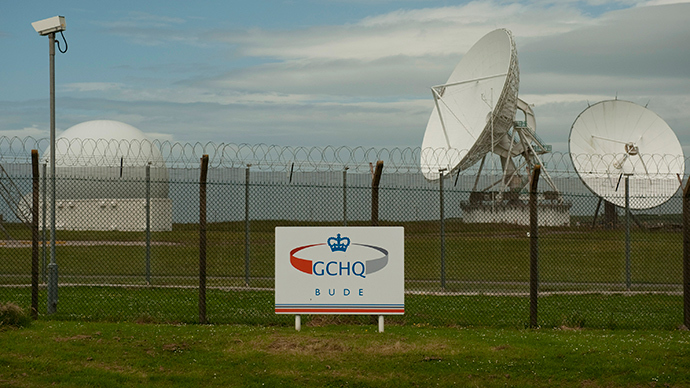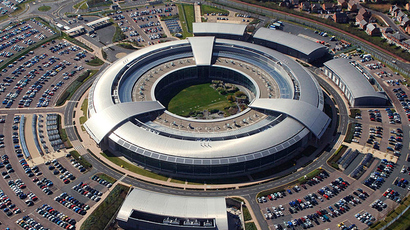Revealed: UK govt intercepted Google, Facebook and Twitter comms

British spy agencies hacked messages exchanged over Google, Facebook and Twitter by changing the definition of comms on the platforms, a Privacy International report reveals.
Vodafone dances around GCHQ in 40,000-word spying confession
The report is based on a UK government document obtained through a pro-privacy lawsuit. It reveals that UK authorities consider any contact between people in the UK via foreign social media or search engines as “external communication” and thus interceptable.
“Internal” UK communication is better protected than “external” and can be intercepted only in cases where authorities suspect illegal activity.
Classifying communications as “external” allows Britain’s digital snoops to search, read, listen and look through them. The only restriction is using keyword searches such as a British person or residence.
Privacy International claim that “by defining the use of ‘platforms’ such as Facebook, Twitter and Google as ‘external communications’, British residents are being deprived of the essential safeguards that would otherwise be applied to their communications - simply because they are using services that are based outside the UK.”
GCHQ chief to step down by year’s end following Snowden leaks
The UK’s digital spy hub, GCHQ, responsible for providing signals intelligence and information assurance to the British government and armed forces, defended its practices.
“…All of GCHQ.’s work is carried out in accordance with a strict legal and policy framework which ensures that our activities are authorized, necessary and proportionate,” the agency said in a statement, “GCHQ has a longstanding policy that we do not comment on intelligence matters.”

Neither Facebook nor Twitter commented but Google responded “We provide user data to governments only in accordance with the law. Our legal team reviews each and every request, and frequently pushes back when requests are overly broad or don’t follow the correct process.”
Eric King, Deputy Director of Privacy International pointed to GCHQ’s slight of hand, “Intelligence agencies cannot be considered accountable to Parliament and to the public they serve when their actions are obfuscated through secret interpretations of byzantine laws.”
“The suggestion that violations of the right to privacy are meaningless if the violator subsequently forgets about it not only offends the fundamental, inalienable nature of human rights, but patronises the British people, who will not accept such a meagre excuse for the loss of their civil liberties.”
In 2013 Privacy International challenged the UK govt at the Investigatory Powers Tribunal (IPT) over mass surveillance. The lawsuit was followed by Edward Snowden’s revelations that GCHQ and the NSA had massive online spying and comms intercept powers under PRISM and Tempora.
Amnesty International also issued a claim in the IPT against British security services In December 2013, claiming their comms were intercepted by UK spy services.
“As a global organization working on many sensitive issues that would be of particular interest to security services in the US and UK, we are deeply troubled by the prospect that the communications of our staff may have been intercepted,” said Michael Bochenek, Director of Law and Policy at Amnesty International.















